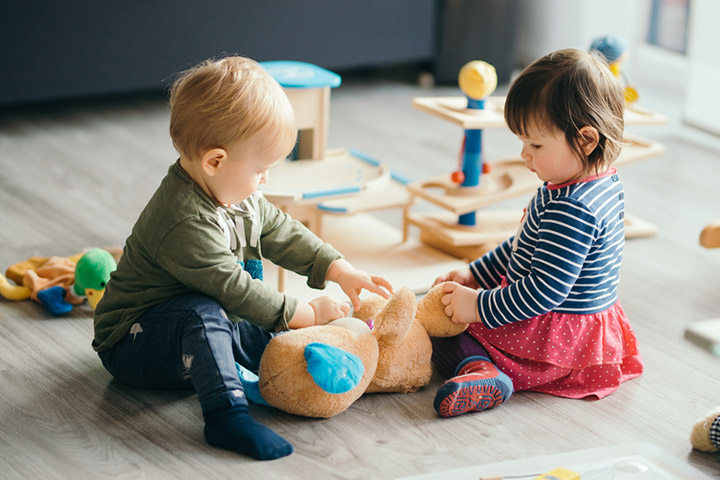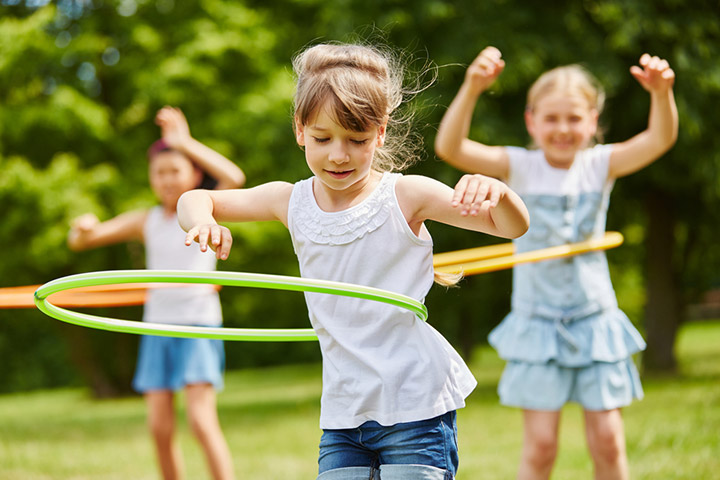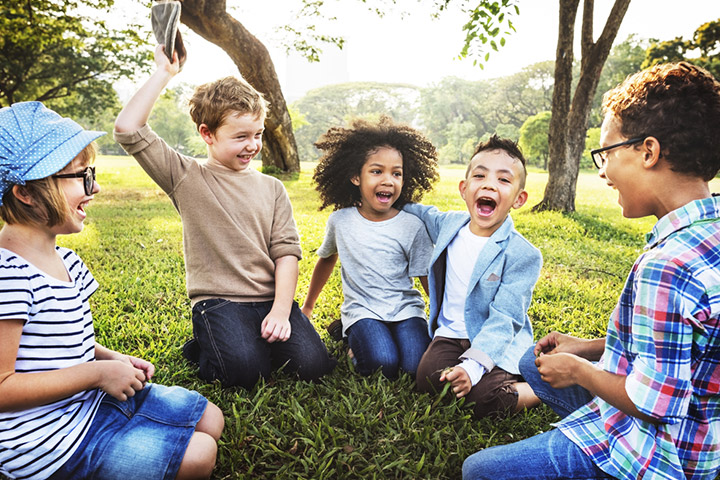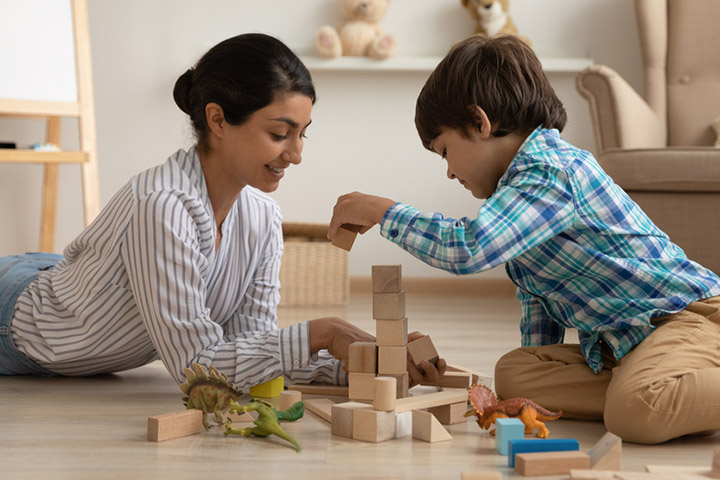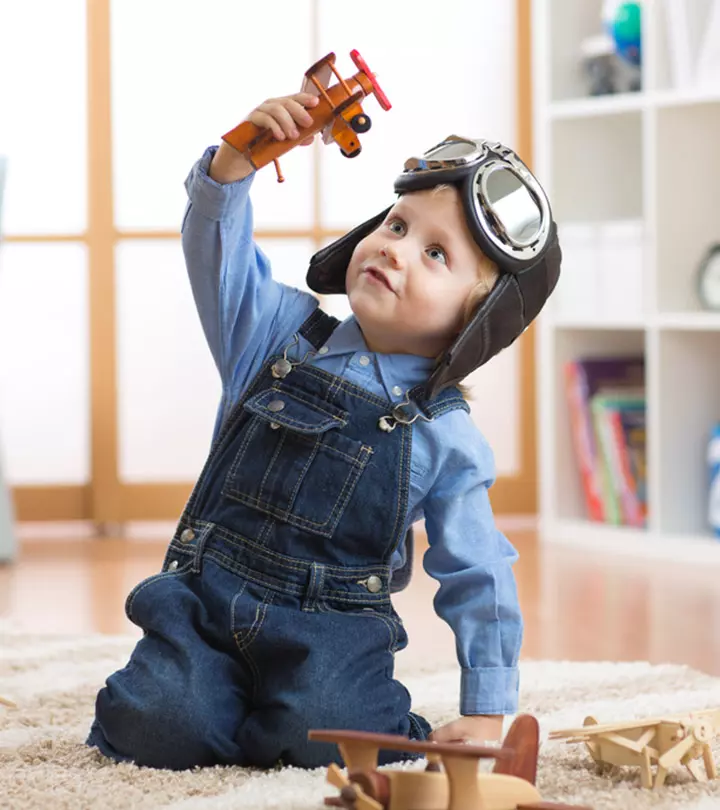
Image: Shutterstock
Kids gravitate towards play naturally because it’s fun and a safe way for them to explore the world around them. But did you know that this seemingly simple act can contribute greatly to their overall cognitive development? Kids learn through play; which is why it is so important to set aside unstructured time where they can enjoy themselves, observe different things and get creative. It is this instinct that helps them engage in activities that benefit and support their developmental needs. If you’re a parent who wants your kids to have a long attention span, be intrinsically motivated and want them to be successful, then you’ve got to encourage playful learning. So, here’s your chance to learn all about playful learning and all the ways in which you can encourage it. Read on to know more!
1. Create A Place To Play
A busy crowded street or a clustered room isn’t the best environment for your child to be in order to get their playful and creative juices flowing. Instead, having a thoughtfully prepared playing space will encourage your little one to explore and engage with their environment. This doesn’t mean that you need a separate room or a pit dedicated to play, all you need is a simple clean space where your kids can move around freely. Make sure that this space is also safe and free of sharp objects before you let your kids move around.
If you’ve got a toddler, make sure that the games are clearly visible and within reach so that they don’t need your help selecting toys and playing with them. You could have a toy shelf that reaches their eye level or a toy basket that they can pull and put things back into. You want your kids to have an open-ended experience with the things they interact with during this time. So give them toys like dress up clothes, legos, baby dolls or wooden blocks so that they can control the play experience. Choose games or toys related to their current interests and switch them out for new games every once in a while.
2. Encourage Freedom Of Movement
Children are curious beings who love to investigate everything. But unfortunately they are told to curb this instinct most of the time in order to sit still, listen and behave. So giving them the time and space to freely move their bodies is an incredible feeling. This is their chance to make a mess and poke at things without being reprimanded. Incorporating movement is a surefire way to encourage playful learning. Not only do kids get to learn about their surroundings, but they get to learn about what their body is capable of. This doesn’t have to be something vigorous either. Even something as simple as picking to lie down on their stomach and draw will do the trick.
3. Fosters Social Interactions
As important as it is to allow your kids to explore the environment undisturbed, it is also important for them to learn how to exercise social skills in a free and less serious setting. Sometime during elementary school, play becomes a more collaborative experience than an individualistic experience. Your child learns to interact with their peers in a playful manner which enables them to be more relaxed and positive. Remember, the point of playful learning is that the child doesn’t feel the pressure to demonstrate learning. Instead, they engage with kids and adults in a fun easy-going setting.
4. It Makes Learning Fun
Learning new concepts should always feel like fun. But if your little one is stuck in a rut and needs some inspiration, you can always use play to make a specific subject or concept easy and fun to learn. All you need to do is take the subject material and turn it into an enjoyable game. For example, if your kid is struggling to solve a couple of math problems, don’t just hand them another sheet. You could write the problems down and hide them all over the room for them to find. This promotes physical movement, helps them get curious and can stimulate their brain better. Then once they find a problem you can help them solve it in order for them to gain points. Solve any doubts they might have along the way. By the end of the game, your child will be able to solve the equation in no time.
Playing isn’t a meaningless pass time. This is when your children get to learn about themselves, their peers and the world around them. Playful learning has so many great benefits for your kids. So encourage them to leave their ipads alone and go explore their surroundings without any specific goal in sight. You will see that they learn many important life lessons this way as well. Happy parenting!
Sources
- Playful Learning: a tool for Environmental Education, NCBI
- Healthy play, better coping: The importance of play for the development of children in health and disease, NCBI

